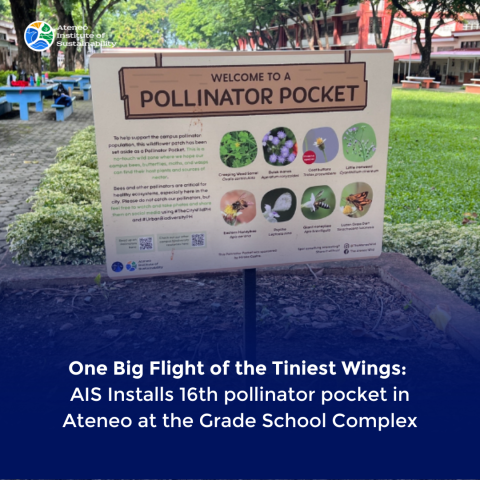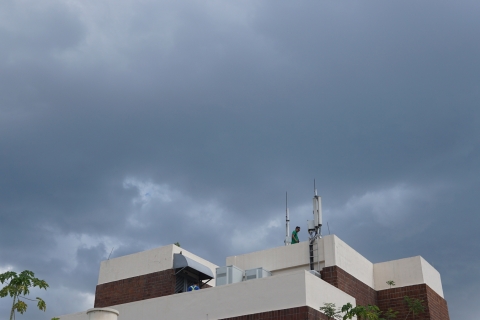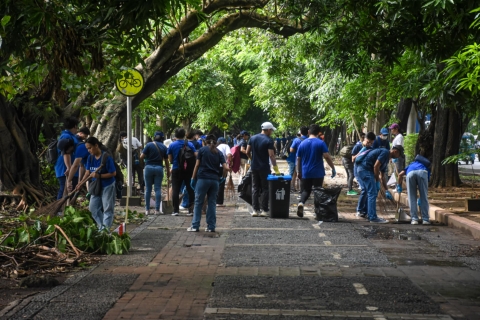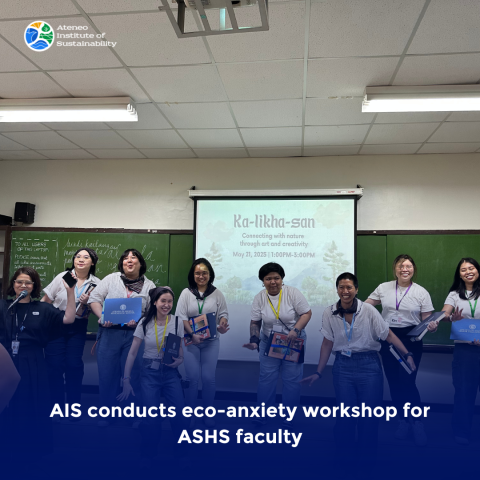CrabTECH: Re-inventing crab mentality through technology
11 Sep 2019
Steamed crab? Chili crab? Crab in coconut milk? These are just some of the dishes you can make using the delicious mud crab or mangrove crab. This ten-legged crustacean, or decapod, lives in the brackish waters of mangrove forests. There are four known species worldwide: the one that grows biggest at a faster growth rate is the king mangrove crab or Scylla serrata, the orange mangrove crab that makes for an ideal soft shell crab is Scylla olivacea, the wild purple mangrove crab is Scylla tranquebarica, and the green mangrove crab that is not found in the Philippines but is abundant in the colder climes of China and Japan is Scylla paramamosain.
A team from the De La Salle University, known as CrabTECH, is set to deploy technologies to improve production and help achieve sustainability in the current grow out practices. Headed by Dr. Chona Camille VinceCruz-Abeledo from DLSU’s Biology Department, the team developed a species identification method for juveniles. This has been converted into an Android-based mobile application with its current iteration brought about by Ms. Courtney Anne Ngo of DLSU’s College of Computer Studies. The app is called Crabifier (Download here: https://tinyurl.com/yy2wmwln) and seeks to allow fishermen to select their preferred juveniles as they capture them from the wild. The app can also allow them to verify the species of the crablets being sold by traders. This is to allow them to maximize the limited resources of a mangrove crab grow-out farm, limiting the ongoing practice of overstocking to compensate for loss due to a multi-species system. It will also prevent them from cutting down more mangrove forests to make way for bigger ponds systems as a loss-compensation mechanism, as well. To learn more about this application, you can visit the Crabifier website at https://tinyurl.com/y4klx5f4.
Another technology that the CrabTECH team seeks to develop is to create a live updated map that indicates temperature fluctuations in mangrove sites all over the Philippines to serve as a guide for mangrove crab farmers about the vulnerability of the crablets they grow in each site. Zones that experience high temperatures and high fluctuations would benefit from growing Scylla serrata and Scylla tranquebarica that were born and bred in similar conditions, while the more vulnerable species of Scylla olivacea should be grown in conditions with slightly lower (but not cool!) temperatures with less extreme fluctuations. The Practical Genomics Laboratory, headed by Dr. Ma. Carmen Lagman, already has static versions of this map for Cagayan, Mindoro, Palawan, Quezon and Panay, developed through Global Information Systems (GIS) technologies and capitalizing on available temperature data for the past three decades. Positive feedback on these maps has inspired the group to automate the process and to have these maps available for use to a wider audience by situating them in a website that more people can access.
At its core, the CrabTECH team seeks to build a network of mangrove crab stakeholders that are ready for the challenges of the 21st century. As CrabTECH proceeds with the deployment of these technologies, they will also organize discussions with mangrove fishers and farmers all over the country to determine their needs and enjoin them in the development of new technologies at the earliest stage possible. They also aim to help in the capacity building of state college and universities, public high schools and local government units through workshops on rapid and low cost methods of DNA barcoding and Python programming through their free SYNERGY workshop series. The team has plans to deploy at least three workshops across the country in the next three years, with plans for more if they find co-hosts for the project.
For those interested to learn more about their projects, to collaborate or simply talk about science, please do not hesitate to contact the CrabTECH team at chona.abeledo@dlsu.edu.ph or at 5244611 loc 406.





